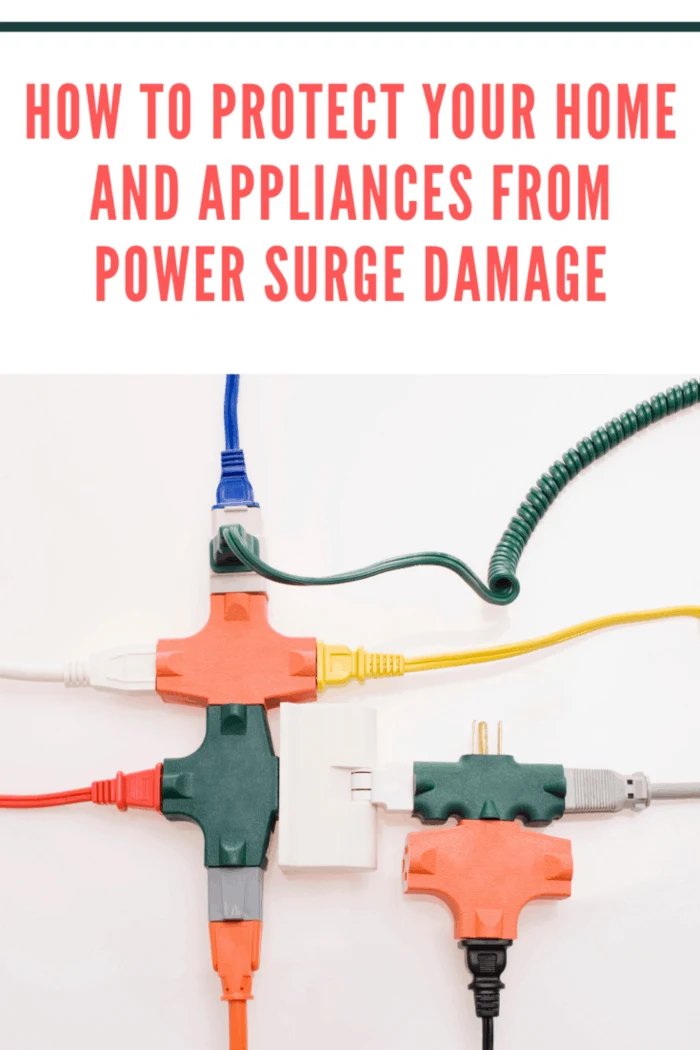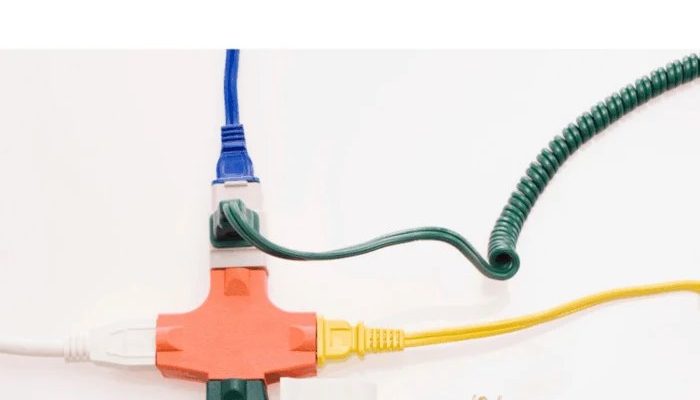
But how can you do this? The good news is, protecting your appliances doesn’t have to be complicated or expensive. With a few smart choices, you can safeguard everything from your beloved kitchen gadgets to your essential home electronics. Let’s dive into some effective methods to keep your appliances humming along smoothly, no matter what Mother Nature throws at them.
Understanding Power Surges
Before we get into the how-to’s, let’s talk a bit about what a power surge actually is. A power surge occurs when there’s a sudden increase in voltage in your electrical system. This can happen for several reasons, like lightning strikes, downed power lines, or even the heavy use of appliances in your home. Just like a sudden jolt can throw you off balance, a surge can disrupt the electrical flow, potentially damaging your appliances.
You might be wondering, “How serious is this?” Well, imagine you’re at a dance party, and someone suddenly bumps the music up to max volume. That jarring sound could blow out speakers, right? Similarly, a power surge can do a number on your appliances, causing them to fail or even become unsafe to use.
In short, protecting your devices against these unexpected jolts isn’t just a good idea—it’s essential for longevity and safety.
Using Surge Protectors
One of the easiest ways to protect your appliances is by using surge protectors. These handy devices act like a buffer between your appliances and the electrical current flowing through your home. When a surge happens, the surge protector takes the brunt of the increase, allowing only a safe amount of electricity to reach your devices.
When shopping for a surge protector, look for ones with a high joule rating. The higher the joule rating, the more energy the protector can absorb. It’s a bit like choosing a raincoat with a thick, water-resistant layer; you want something that can withstand a lot of moisture!
Here are some tips for using surge protectors effectively:
- Plug high-value electronics, like computers and televisions, directly into a surge protector.
- Make sure your surge protector is grounded properly for optimal performance.
- Don’t overload your surge protector—stick to the recommended number of devices.
Using surge protectors can significantly reduce the risk of damage, but remember, they can wear out over time. It’s wise to check or replace them every couple of years.
Investing in Whole-House Surge Protection
If you’re serious about protecting all the appliances in your home, consider investing in whole-house surge protection. This is a more comprehensive approach and involves installing a surge protector directly into your electrical panel.
Think of it as adding a security system to your home. Instead of relying solely on individual surge protectors, which may only protect a few devices, a whole-house system provides a blanket of security for everything connected to your electrical system.
Here’s what to consider:
- Consult with a licensed electrician to assess your home’s needs and ensure proper installation.
- Inquire about warranties or assurances to safeguard your investment.
- Make sure it’s compatible with your current electrical setup.
With whole-house surge protection, you’re investing in peace of mind and protecting everything from your refrigerator to your entertainment system.
Regular Maintenance and Inspections
Like a car, your electrical system and appliances need regular check-ups to run smoothly. Planning for maintenance can help you catch issues before they turn into costly repairs or damage from a surge.
Consider scheduling annual inspections with a licensed electrician. They can help identify potential issues, such as worn-out wiring or outdated systems that might be more susceptible to surges. This is like having a mechanic check your car’s brakes—safety first!
Also, keep an eye out for any unusual signs in your appliances, including:
- Unusual noises or flickering lights
- Tripped breakers
- Burning smells or hot outlets
These could indicate underlying problems that may make your appliances more vulnerable to power surges.
Unplugging Appliances During Storms
When storm clouds gather and the winds howl, it’s a good practice to unplug your appliances. This might seem like a hassle, but it’s one of the most effective ways to safeguard your devices from surges caused by lightning strikes or harsh weather conditions.
Imagine being at a picnic, and dark clouds roll in. The best thing to do is to pack your lunch and head for shelter, right? The same principle applies here. By unplugging your devices during a storm, you’re essentially minimizing risk.
Here are some quick tips:
- Have a routine: When storms are forecasted, take a few moments to unplug devices like TVs, computers, and gaming consoles.
- If you can’t unplug, try to use surge protectors as a makeshift safety net.
- Don’t forget small appliances like microwaves and coffee makers; they can be vulnerable too!
It may feel like a small step, but every little bit helps when it comes to keeping your appliances safe.
Educating Household Members
If you live with family or roommates, it’s important to share knowledge about power surges and appliance protection. Think of it as team training for a sports game: everyone plays a part in keeping things running smoothly.
Discuss the precautions you’ve taken, like using surge protectors and unplugging devices during storms. Make sure everybody understands why these practices are important. The more informed everyone is, the better you can protect your home as a unit.
You could even create a handy “storm prep” checklist and hang it on the fridge. This way, everyone knows what to do when a storm approaches, making it a collective effort.
Protecting your appliances from power surges in zip code 37204 is all about being proactive. By using surge protectors, investing in whole-house protection, regularly maintaining your electrical systems, and simply unplugging during storms, you can cover all your bases.
Think of your appliances as valuable members of your household. With just a bit of effort and awareness, you can help ensure they stay safe and reliable for years to come. Remember, a little prevention goes a long way—just like a good cup of coffee on a rainy day. You never know when a storm will hit, but you can be ready for it!
